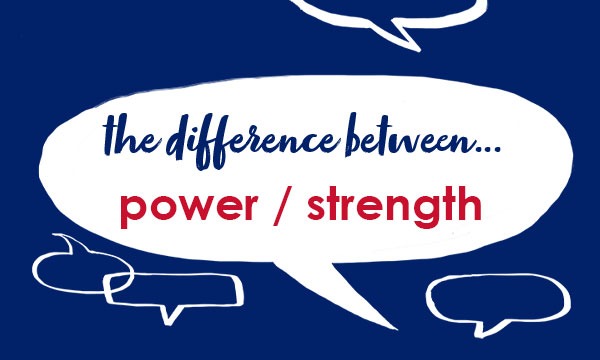This week we are looking at two words which may be confused by learners of English: power and strength.
power

If someone has power, they are able to control other people and their activities.
He believes the President has too much power.
People in positions of power must act responsibly.
strength

Use strength rather than ‘power’ to refer to someone’s physical energy, or their ability to move heavy objects.
This sport requires a lot of physical strength.
It took me some time to recover my strength after the illness.
Find out more in our English Usage article.
This blogpost is based on Collins COBUILD English Usage, written for learners of English. For more examples of English usage points, please visit: https://grammar.collinsdictionary.com/english-usage.
All opinions expressed on this blog are those of the individual writers, and do not necessarily reflect the opinions or policies of Collins, or its parent company, HarperCollins.




collins_dictionary_official
The home of living language. #wotd #wordlovers #collinsdictionary
Read our word of the week definitions and blog posts: